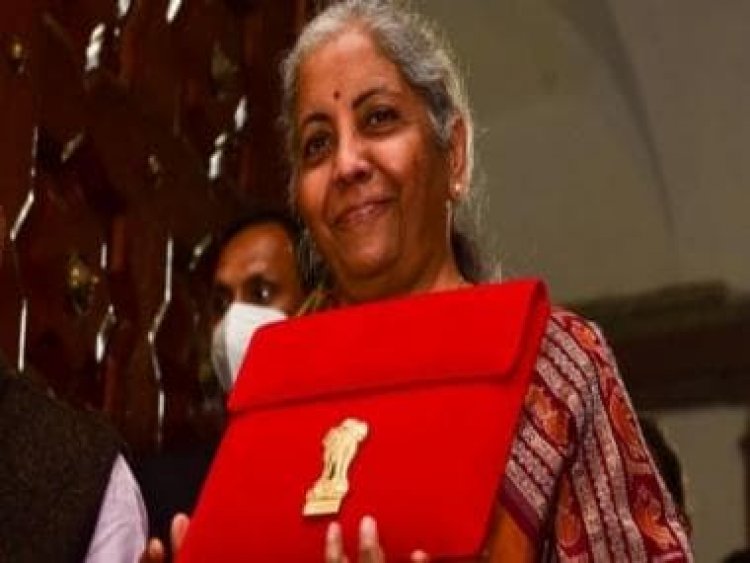Union Budget 2023: What respite can India’s middle class expect?
Union Budget 2023: What respite can India’s middle class expect?

Finance Minister Nirmala Sitharaman will present the last full Union Budget of the Narendra Modi government on Wednesday (1 February) ahead of the 2024 Lok Sabha elections.
While the expectations of various sectors and income groups remain high, the middle class hit by inflation and job losses will be keenly watching Sitharaman’s fifth Budget speech.
Earlier in January, the Union finance minister said the government will continue to work for the middle class, saying she understands their pain as she herself “belongs to the middle class”.
As the middle class comprises a major chunk of India’s total population, let’s take a look at what Union Budget 2023 can have in store for them.
Tax reliefs
There has been no major relief to income taxpayers in the Budgets of the Modi government so far.
The income tax rates have remained stable since the financial year 2017-18.
Presently, around 5 per cent of India’s 140 crore population pays direct income taxes, out of which the majority is contributed by the middle class, according to Financial Express.
As per a Moneycontrol report, Sitharaman could announce measures that would benefit the middle class.

In the Union Budget for the financial year (FY) 2020-21, the finance minister had rolled out a ‘new tax regime’. This year, it is expected that the government will make it more alluring.
“The focus will be on exemption-free tax regime – a simple, straight, lower tax rate and no exemptions. Maybe that is the direction that the government is likely to strengthen rather than give all kinds of direct and indirect exemptions,” CJ George, MD and CEO of Geojit Financial Services, told Deccan Herald.
ALSO READ: A look back at some memorable speeches by finance ministers
Income tax exemptions
Amid high inflation, experts say the government should focus on increasing the exemption limit and standard deduction.
The income tax exemption limit has remained at Rs 2.5 lakh since 2014, while the standard deduction continues to be at Rs 50,000 since 2019.
Section 80C is the “only general Income Tax section available to everybody for saving some tax. This section covers a huge canvas from PPF/EPF, ELSS, NSC, NPS and SSY to Life Insurance policies, tuition fee and principal part of home loans. Even after increasing it to 3 lakhs, a major part of one’s investments in these instruments for a middle-income person remain taxable,” Colonel (retired) Sanjeev Govila, CEO of Hum Fauji Initiatives, a financial planning firm, told Moneycontrol.
“The 80C limit was last revised from Rs 1 lakh to 1.5 lakhs in FY 2014-15, 8 years back when the Cost Inflation Index (CII) was 240. It is 331 now and considering current inflation only at six per cent, it comes out to about 351 for the next FY for which this increase is being discussed. With that, the current limit should be about Rs 2.19 lakh. However, also considering that the government takes an unduly long time to revise this limit, it should go to at least Rs 2.5 lakh, and preferably to Rs 3 lakh,” Govila added.
ALSO READ: Decisive policy decisions required to create future-ready fintech industry
Job creation
The middle class is seeking job opportunities amid layoffs and high unemployment.
Union Budget 2023 can expand job-oriented sectors such as manufacturing and infrastructure, as per India Today report.
The report also said citing experts that the Centre could introduce an urban employment generation scheme to provide some respite from the recent job cuts.

Affordable housing
India’s home loan market was valued at about Rs 24 lakh crore as of August 2022, which is expected to double in the next five years.
Pankaj Bansal, director of M3M India wrote for Financial Express that real estate has remained a “preferred choice” when it comes to secured investment.
To boost the property sector, the Budget has to provide relief to the buyers.
Neeraj Bansal, co-head and COO-India Global, KPMG India, told Moneycontrol that the government should carry on with Credit Linked Subsidy Scheme (CLSS) in order to encourage people to buy affordable homes.
Bansal also suggested revising the price cap of affordable housing to incentivise buyers.
Pradeep Aggarwal, founder and chairman of Signature Global Group, also recommended the central government to extend CLSS till 2027, reported Moneycontrol.
“Budget 2023-24 can push the government’s affordable rental housing scheme that was launched post the pandemic. COVID-19 put serious constraints on the lower income groups, causing many to step away from homebuying aspirations altogether. To add momentum to its Housing for All vision, the government can use the Budget to incentivise ARHCs (Affordable Rental Housing Complexes) which can fill the gap until homebuying capacity in the lower income groups improves,” Anuj Puri, Chairman of ANAROCK Group, was quoted as saying by Moneycontrol.
Other measures
Srikanth Subramanian, CEO of Kotak Cherry, wrote for Financial Express that the Union Budget must “target lower cost of living” for the middle class.
“For example, a petrol and diesel excise cut can help bring down prices of goods from vegetables to electronics due to lower transport and logistics costs. As disposable income increases, the tendency to spend and invest also increases,” Subramanian explained.
The Kotak Cherry CEO also mentioned in the Finacial Express report that the Budget is expected to leave more savings for the middle class that will improve the spending ability.
With inputs from agencies
Read all the Latest News, Trending News, Cricket News, Bollywood News,
India News and Entertainment News here. Follow us on Facebook, Twitter and Instagram.
What's Your Reaction?



























































